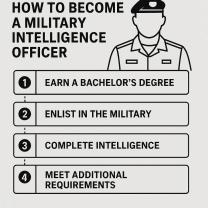Is air traffic control a good career to get into?
Air traffic control can be a rewarding and well-compensated career for individuals who are interested in aviation, possess strong communication and problem-solving skills, and can handle the high-pressure, fast-paced environment of controlling the movement of aircraft. Whether it's a good career for you depends on your personal interests, aptitude, and career goals. Here are some considerations to help you decide if air traffic control is a good fit for you:
Pros of a Career in Air Traffic Control:
Job Stability: Air traffic control is a critical part of aviation safety, and there is a consistent demand for controllers. The job typically offers strong job security.
Competitive Salary: Air traffic controllers are well-compensated for their work, with salaries often above the national average. Earnings can increase with experience, additional training, and working at busier airports.
Benefits: Federal benefits for air traffic controllers, including retirement plans and health insurance, are generally quite attractive.
Challenging and Dynamic Work: If you enjoy problem-solving and a dynamic work environment, air traffic control can be exhilarating. You'll face new challenges every day.
Sense of Responsibility: Air traffic controllers play a crucial role in ensuring the safety of thousands of people in the sky every day. This sense of responsibility can be professionally fulfilling.
Minimal Education Requirements: While training is rigorous and competitive, the education requirements for entry-level positions are relatively low, usually a high school diploma or equivalent.
Cons and Considerations:
Intensive Training: The training to become a certified air traffic controller is challenging and can take several years to complete. Many candidates don't make it through the entire process.
High Stress: The job is demanding, and controllers often work under high-stress conditions. The ability to stay calm and make quick decisions is essential.
Erratic Shift Work: Air traffic control operates 24/7, which means you may have to work nights, weekends, and holidays. Shift work can be disruptive to work-life balance.
Strict Medical and Age Requirements: Air traffic controllers are subject to strict medical and age requirements. These requirements may limit entry for some individuals.
Isolation: Working in a control tower or en-route center can be isolating as you're often alone or with a small team in a confined space.
Union Membership: Many air traffic controllers are part of unions, which can have pros and cons. Union membership can offer protections and benefits, but it may also involve union dues and obligations.
Technological Changes: Advancements in technology are changing the industry. While it can improve efficiency, it may also lead to workforce reductions.
Training Costs: The costs associated with training and certification can be significant, especially if you need to pay for your training.
In conclusion, air traffic control can be a good career choice if you have the right temperament and skills for the job. It offers job security, competitive compensation, and a sense of responsibility. However, it also comes with demanding training, high stress, and the need to adapt to changing technology. If you are interested in aviation, enjoy a challenge, and can handle the unique demands of the profession, it may be a rewarding career for you. It's essential to research and understand the specific requirements and expectations for air traffic controllers to make an informed decision.
Air Traffic Control as a Career: Insights and Considerations
Air traffic control (ATC) is a challenging and rewarding career that plays a vital role in the safety and efficiency of air travel. Air traffic controllers coordinate the movement of aircraft in the sky and on the ground, ensuring that they maintain safe distances from each other.
The Role and Responsibilities of Air Traffic Controllers
The role and responsibilities of air traffic controllers vary depending on their specific position. However, all air traffic controllers must have a deep understanding of aviation procedures and regulations, as well as the ability to think quickly and make sound decisions under pressure.
Some of the common responsibilities of air traffic controllers include:
- Separating aircraft to maintain safe distances between them
- Issuing clearances to pilots to take off, land, and change altitude
- Monitoring weather conditions and advising pilots of any potential hazards
- Responding to emergencies
Training, Qualifications, and Advancement in ATC Careers
To become an air traffic controller in the United States, you must complete a rigorous training program at the FAA Academy in Oklahoma City, Oklahoma. The training program lasts approximately 12-18 months and covers a wide range of topics, including aviation regulations, procedures, and equipment.
Once you have completed the training program, you will be assigned to a control tower or air traffic control center where you will continue to train on the job under the supervision of experienced controllers. After you have successfully completed your on-the-job training, you will be certified as an air traffic controller.
There are several opportunities for advancement in air traffic control careers. As you gain experience and demonstrate your skills, you can be promoted to more senior positions, such as supervisor or manager. You may also be able to specialize in a particular area of air traffic control, such as tower control, radar control, or approach control.
The Pros and Cons of Pursuing a Career in Air Traffic Control
Pros:
- Good pay and benefits
- Job security
- Challenging and rewarding work
- Opportunity to make a difference in aviation safety
Cons:
- Long hours and shift work
- High-stress environment
- Difficult training program
- Limited job locations
Personal Journeys and Success Stories in ATC
Here are a few personal journeys and success stories in ATC:
- John: John always dreamed of a career in aviation. After high school, he joined the Air Force and became an air traffic controller. After serving in the Air Force, John worked as an air traffic controller for the FAA for over 30 years. He eventually retired as a supervisor at a major air traffic control center.
- Jane: Jane was a single mother when she decided to pursue a career in air traffic control. She worked hard to complete the training program and was eventually certified as an air traffic controller. Jane worked as a tower controller for several years before being promoted to supervisor. She is now a manager at a major air traffic control center.
- David: David was a student pilot when he realized that he wanted to be an air traffic controller. He completed the FAA training program and was certified as an air traffic controller. David worked as a radar controller for several years before being promoted to supervisor. He is now a manager at a major air traffic control center.
These are just a few examples of the many successful air traffic controllers who have made a difference in the aviation industry. If you are interested in a challenging and rewarding career that plays a vital role in public safety, consider pursuing a career in air traffic control.













